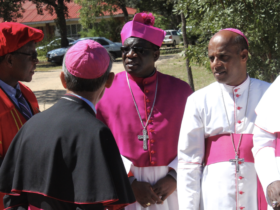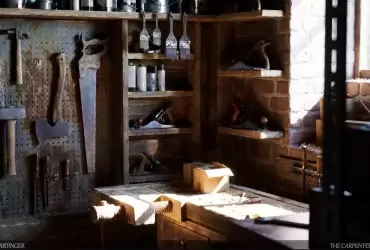This Sunday, we do not have a story about what Jesus did; it is simply what he
says. His words are introduced by Ezekiel’s idea of the prophet as a watchman.
Many houses and institutions in Harare have watchmen or watch women. It is a
lonely – even dangerous task. It is akin to the shepherd who guards his flock by
night. It is also a responsible task. The physical welfare of the people and their
property is in the hands of the one who watches. Jesus extends this to their
spiritual welfare and here we see the prophet moving beyond just watching and
warning. He tells his disciples they are responsible for the welfare of others.
This has political consequences. Anyone in a leadership role – parent, teacher,
councillor, president – has the task of caring for all in his or her care. Everyone,
at the level at which they find themselves, is duty bound to care for those for
whom they are responsible.
A hundred years ago the pope came up with the clumsy word, subsidiarity. It
was the time when states were claiming total power over their citizens, making
choices for them that it was none of their business to make. Pius IX insisted that
responsibility should be shared out according to the level at which one finds
oneself. It is none of the state’s business, normally, to tell me what to plant in
my garden, (unless, of course, I am growing that will be harmful to others!)
Similarly, local people are most likely to know where to put a bore-hole,
(unless, again, they have no idea and some expert knowledge is required). But,
to return to our watchman, the point we come to is: we are responsible for each
other at whatever level we find ourselves. Yet, we hate taking that
responsibility. We fear we will be rebuffed or we will be accused of poking our
nose in another person’s business. It is much easier to just say nothing. Perhaps,
too, we feel young people especially are exploring life, trying to find their place,
and the last thing they want to be told by some fuzzy adult is that they may be
on the wrong track.
Yet experience also shows that, when someone in a responsible position – an
aunt/uncle, a teacher or a friend – and does make the effort to share his concern,
it is often deeply appreciated. In the story of The Little Prince, the fox says to
him, ‘You become responsible, forever, for what you have tamed.’ We need
to remind ourselves; relationship always carries responsibility. Our age is often
characterised as one of ‘individualism.’ People feel free of custom, tradition and
religion and want to make up their own minds. This is good in a way but we
also need the balance and wisdom that listening to the experience of others can
teach us.
I am Responsible for What I Tamed










Leave a Reply